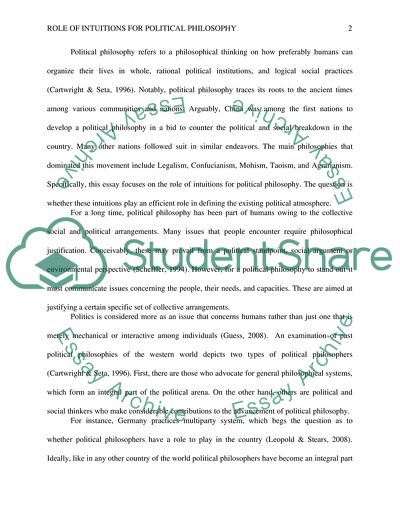Cite this document
(Role of Intuitions for Political Philosophy Coursework Example | Topics and Well Written Essays - 1750 words - 2, n.d.)
Role of Intuitions for Political Philosophy Coursework Example | Topics and Well Written Essays - 1750 words - 2. https://studentshare.org/politics/1878867-political-philosophy
Role of Intuitions for Political Philosophy Coursework Example | Topics and Well Written Essays - 1750 words - 2. https://studentshare.org/politics/1878867-political-philosophy
(Role of Intuitions for Political Philosophy Coursework Example | Topics and Well Written Essays - 1750 Words - 2)
Role of Intuitions for Political Philosophy Coursework Example | Topics and Well Written Essays - 1750 Words - 2. https://studentshare.org/politics/1878867-political-philosophy.
Role of Intuitions for Political Philosophy Coursework Example | Topics and Well Written Essays - 1750 Words - 2. https://studentshare.org/politics/1878867-political-philosophy.
“Role of Intuitions for Political Philosophy Coursework Example | Topics and Well Written Essays - 1750 Words - 2”. https://studentshare.org/politics/1878867-political-philosophy.


